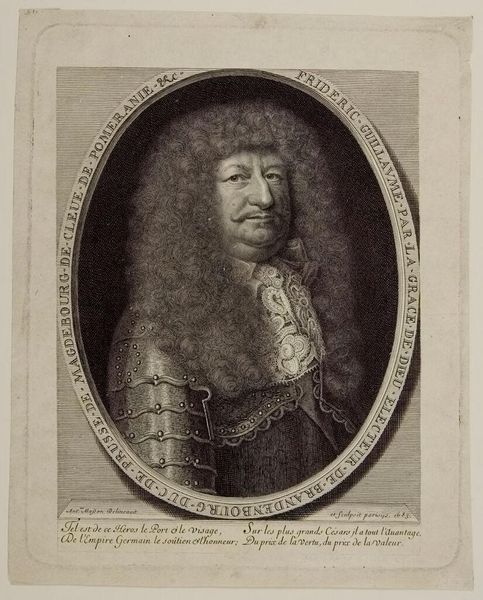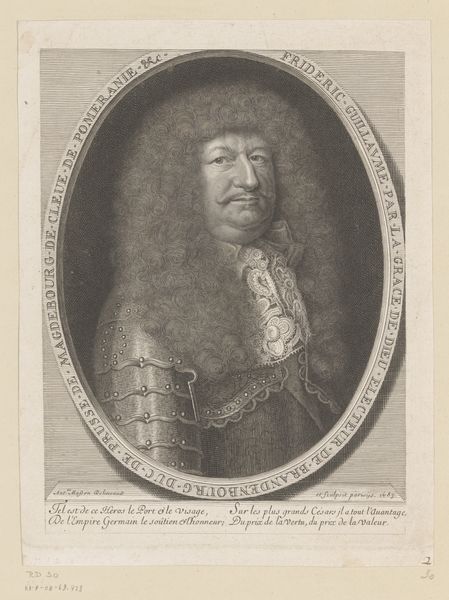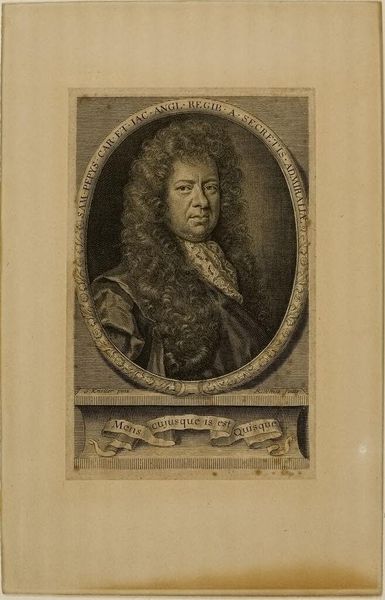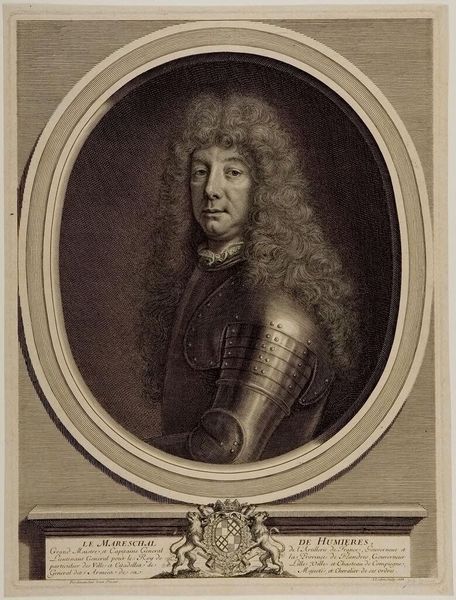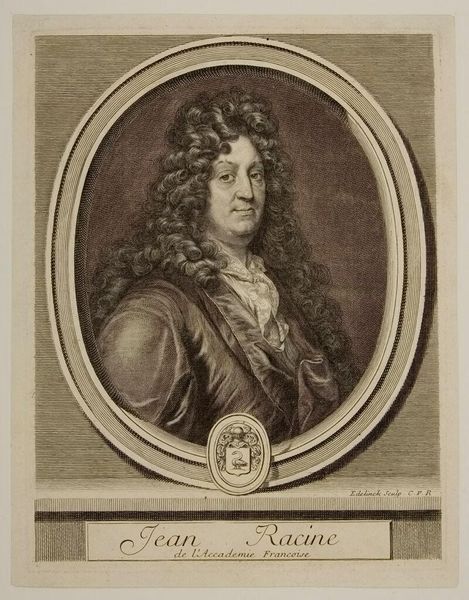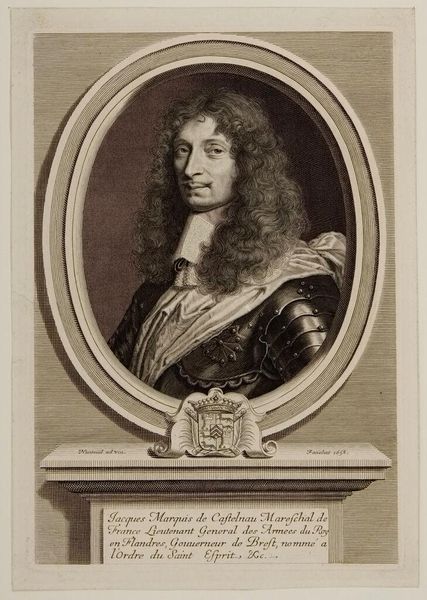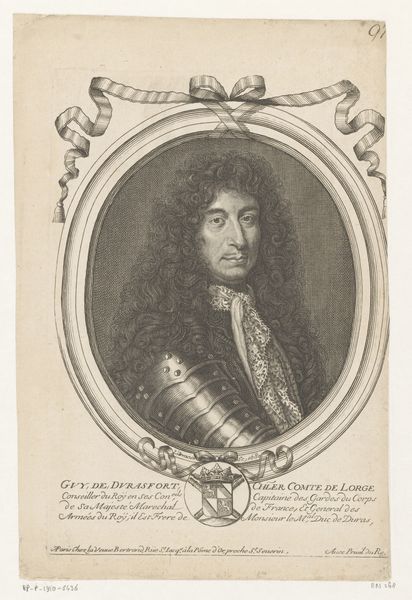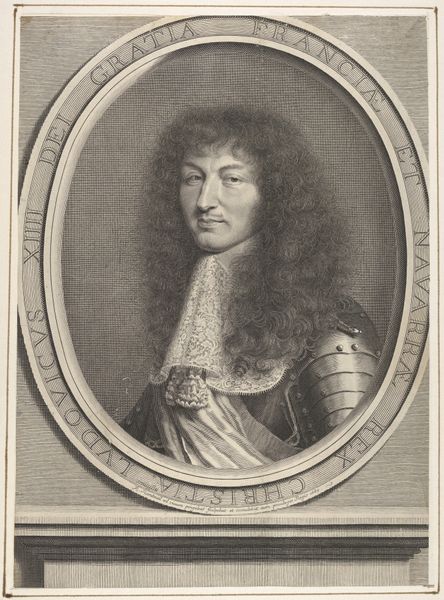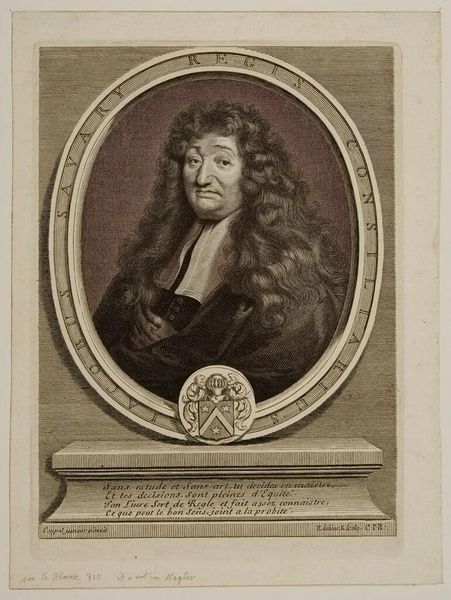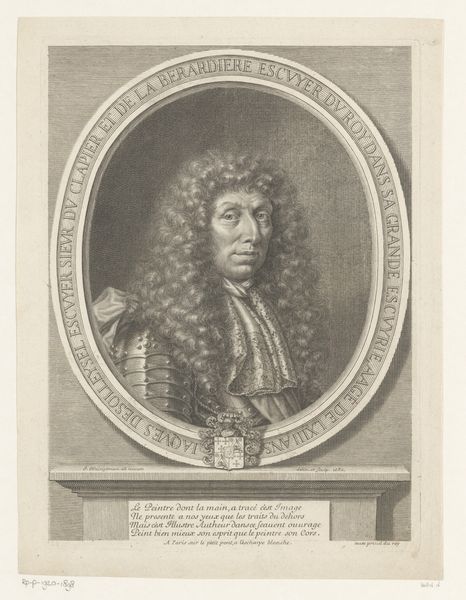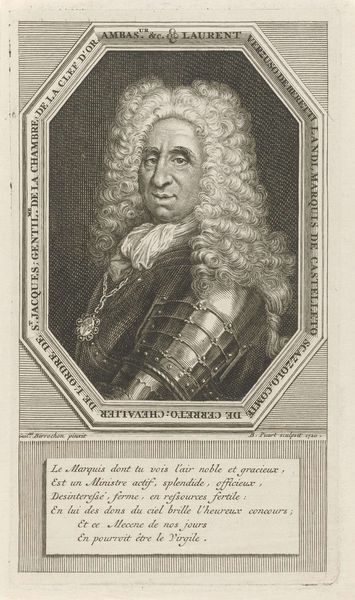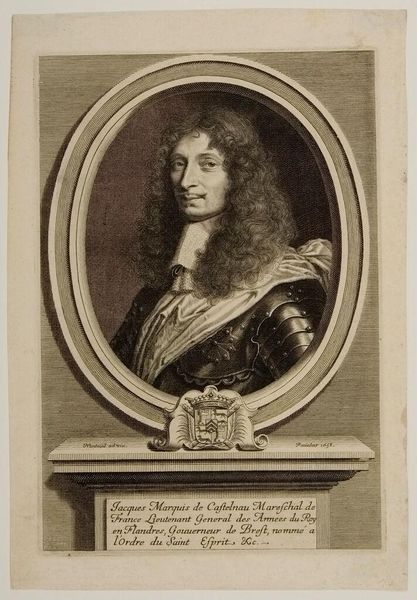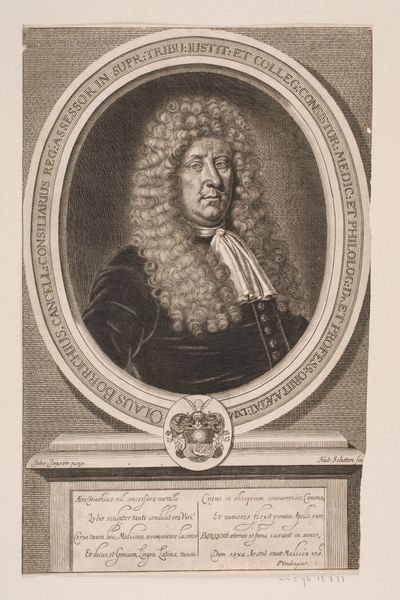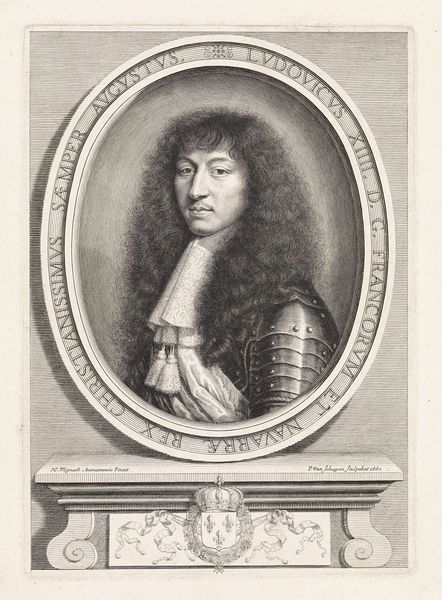
Frédéric-Guillaume (called "le Grand"), Electeur de Brandenberg, Duc de Prusse, de Magdebourg, de Cleve, de Pomeranie, etc. c. 17th century
0:00
0:00
Copyright: CC0 1.0
Curator: Antoine Masson’s 1683 engraving depicts Frédéric-Guillaume, the Great Elector. The armor communicates power, doesn't it? What's your read on that? Editor: It definitely projects authority. But what does it say about the society that valued such displays of power? Curator: Precisely! The visual language here is deeply embedded in the politics of the time. This wasn't just about personal glory; it was about legitimizing a certain power structure, gender roles, and even a specific racial ideology. How does this image contribute to maintaining that structure? Editor: I guess it reinforces the idea of a strong, almost invincible, ruler. It makes you wonder who benefits from perpetuating that image. Curator: Indeed. Examining art through this lens, we can challenge the assumptions embedded within these historical narratives. Editor: I've never thought about it that way before. Now, I see it as so much more than just a portrait. Curator: Exactly, art reflects and shapes society.
Comments
No comments
Be the first to comment and join the conversation on the ultimate creative platform.
